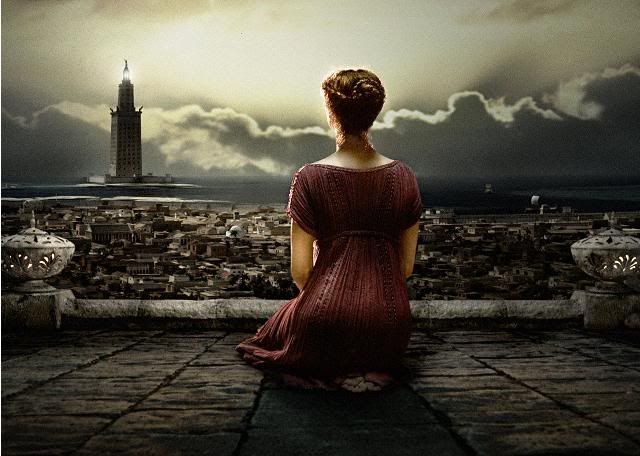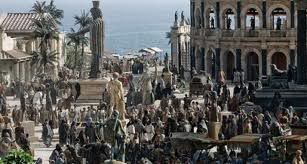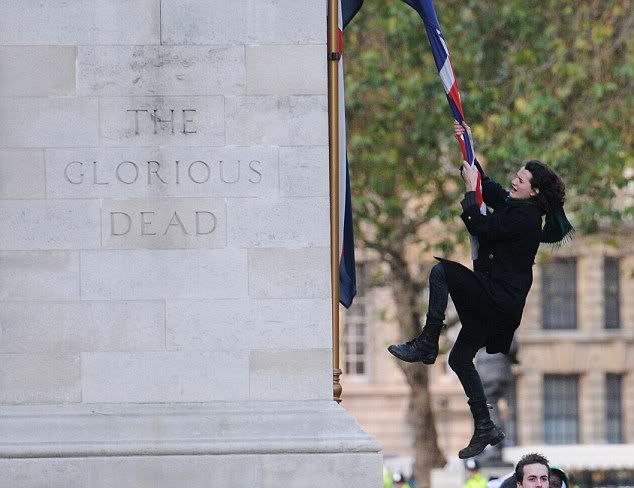Milk thistle: Hate crime in progress
Remember those childhood puzzles that presented you with a drawing and asked, "How many things can you find wrong in this picture?"
Europe to ban hundreds of herbal remedies, says The Independent.
Hundreds of herbal medicinal products will be banned from sale in Britain next year under what campaigners say is a "discriminatory and disproportionate" European law. With four months to go before the EU-wide ban is implemented, thousands of patients face the loss of herbal remedies that have been used in the UK for decades.
From 1 May 2011, traditional herbal medicinal products must be licensed or prescribed by a registered herbal practitioner to comply with an EU directive passed in 2004. The directive was introduced in response to rising concern over adverse effects caused by herbal medicines.
I can't promise to find all of them, but here are some things wrong with this picture.
1. This isn't an act of the British medical bureaucracy, but British people will be denied the use of herbal supplements because their unelected masters in the European Union say so. Technically the U.K. isn't even a member of the EU, but what's that to the international government elite? For reasons that have never been clear to me, the U.K. seems bound to follow every EU ruling anyway.
2. The government parasite class, as it does so often, is creating more regulation to solve a non-problem. As the story says, these herbal products have been used for decades -- which means, I think, sold as dietary supplements for decades. Many have been used in folk medicine for centuries. They are legal in the United States, which itself suffers from Regulation Fever. But starting soon, they will be guilty until "proven" innocent in the EU and its British satellite state.
3. Using one of lazy journalists' cliché phrases, the writer talks of "rising concern" over herbal supplements (not "medicines" -- no one except a newspaper reporter calls a supplement a medicine). Rising where? How high? We are told that "the UK Medicines and Healthcare Products Regulatory Agency (MHRA) has issued more than a dozen safety alerts in the past two years, including one over aristolochia, a banned toxic plant derivative which caused kidney failure in two women."
I get catalogs in the mail from supplement merchants and read the Life Extension Foundation's magazine, so I am at least familiar with the names of most supplements, including herbs. (Brits, by the way, pronounce the "h" while Yanks don't; 'erbs sounds like east London or "Cockney" pronunciation to the English, low class, so it probably won't be long before the BBC insists its announcers say 'erbs lest they sound elitist.) Never have I run across aristolochia supplements. A Google search turns up information about the genus Aristolochia -- "evergreen and deciduous woody vines and herbaceous perennials." I find loads of sites with descriptions of it, some including warnings. No herbal supplement company is selling Aristolochia for what ails ya.
4. It is a fallacy that there are clearly delineated "safe" and "unsafe" substances. Fully approved medicines are bad for some people, and quite a few have side effects that are real downers. A doctor told me once that occasionally aspirin proves dangerous. According to this site, "The Journal of the American Medical Association reports studies showing 2,000 deaths occur due to unnecessary surgery, 7,000 deaths are due to medication errors in hospital, 20,000 deaths are due to general hospital error, 80,000 deaths are due to hospital induced infections and 106,000 deaths are due to in-patient adverse drug reactions."
Okay, MedicalMalpractice.com is a tort lawyers' site, and they should have given a citation for the AMA data and also said what time span the data cover. Still, there's no doubt that checking into the hospital is one of the riskier things you can do, and that "real" pharmacological drugs, patented and all that, sometimes kill people even when administered according to accepted protocols. I work in the field of risk reduction and can tell you risk is part of life; all you can do is mitigate it, not eliminate it. As substances go, the overwhelming majority of herbs seem pretty benign.
According to the Alliance for Natural Health (ANH), which represents herbal practitioners, not a single product used in traditional Chinese medicine or ayurvedic medicine has been licensed. In Europe, around 200 products from 27 plant species have been licensed but there are 300 plant species in use in the UK alone.
The ANH estimates the cost of obtaining a licence at between £80,000 and £120,000 per herb. They say this is affordable for single herbal products with big markets, such as echinacea, a remedy for colds and flu, but will drive small producers of medicines containing multiple herbs out of business.
4. Here, at least, the story gets it right. If you have to obtain a license costing £80,000 to £120,000 per herb to have the right to sell it, that obviously is the kiss of death for any company except a member of Big Pharma. They're only going to shell out for licenses to sell hot stuff like resveratrol. If there's a herbal remedy for something that only a small percentage of the population suffers from, or a herb that 60 Minutes hasn't done a segment on, it will go out of circulation regardless of whatever virtues it may possess. For our own protection.
Under EU law, statutorily regulated herbal practitioners will be permitted to continue prescribing unlicensed products. But the Coalition Government and the previous Labour administration have delayed plans to introduce a statutory herbal practitioner register.
5. So EU law is designed to uphold a closed shop of healers, a guild of the anointed. You can be sure these proud few will sell unlicensed herbal supplements, at eye-watering prices with a nice rake-off for themselves. Thralls of the EU won't be able to buy quality supplements from a reputable source like Vitacost.com at a discount.
There'll be a new Board of Herbologists determining who is fit to dispense the unlicensed products of nature -- those very ones that are too dangerous for the masses to choose for themselves. Naturally, the Board will be careful not to approve too many practitioners, which could lead to competition.
This isn't to say the herbal supplement business couldn't be upgraded. Most products are not independently assayed to insure that they have the ingredients at the dosage claimed on the label (although some manufacturers have third-party quality control). A government agency spot checking the truth of the labeling could perform a valuable service, at relatively little cost. It wouldn't have to regulate anything, either, just publish its testing results.
Probably some of the thousands of herbal products on the market, while not dangerous, aren't very effective. I'd make a rough guess -- and it's only a guess -- that a third of them are useless. The trouble is, we don't know which third. Well-designed and executed large-scale, double-blind, placebo-controlled research projects on non-patentable substances are expensive and don't have a big payoff. (Actually, the citations in Life Extension magazine reveal an amazing number of studies on supplements, but they are published in obscure journals that even medical doctors, let alone the public, are unaware of.)
Some of the money the spent on supplements is wasted. Some is worth every brass farthing and more. Why shouldn't people experiment and judge for themselves, instead of being subject to a class of official witch testers choosing what they can try and who can supply it?
























